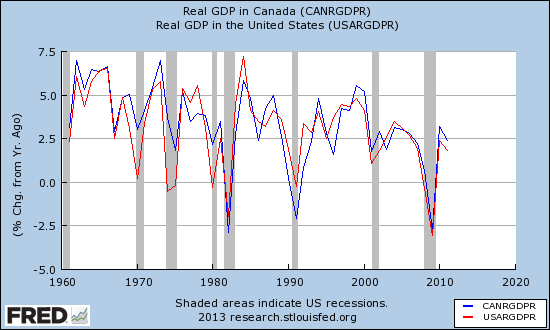FTC V. Meta: Latest Updates On Instagram And WhatsApp Antitrust Case

Table of Contents
The FTC's Allegations
The FTC's core argument in the FTC v. Meta antitrust case centers on the assertion that Meta's acquisitions of Instagram in 2012 and WhatsApp in 2014 were anti-competitive moves designed to eliminate potential rivals and solidify Meta's dominance in the social media market. The commission argues these acquisitions stifled innovation and harmed consumers.
- Specific Anti-Competitive Practices Alleged: The FTC alleges that Meta used its market power to suppress competition by acquiring promising competitors before they could pose a serious threat. They argue that Meta strategically bought Instagram and WhatsApp to prevent them from becoming major rivals to Facebook.
- Potential Harm to Consumers: The FTC claims that Meta's actions have resulted in reduced consumer choice, limited innovation in social media features, and potentially higher prices (though the latter is less directly argued). The lack of competition, they argue, allows Meta to control the market and dictate terms.
- Supporting Evidence: The FTC's case relies on internal Meta documents, market analysis, and expert testimony detailing the competitive threat posed by Instagram and WhatsApp before their acquisition. These documents, partially revealed through court proceedings, form the backbone of their antitrust lawsuit. (Citations to specific FTC documents would be included here in a full-length article.)
Meta's Defense
Meta vehemently denies the FTC's allegations, arguing that the acquisitions of Instagram and WhatsApp were pro-competitive and beneficial for consumers. Their defense strategy focuses on several key points:
- Justification for Acquisitions: Meta contends that the acquisitions were driven by a desire to integrate innovative technologies and services, enhancing the user experience and fostering innovation within its ecosystem. They highlight the synergies between the platforms and the benefits of cross-platform integration.
- Evidence Presented by Meta: Meta's defense team has presented evidence showcasing the independent growth trajectories of Instagram and WhatsApp, arguing that they would have flourished even without Meta's involvement. They also emphasized the numerous features and functionalities added post-acquisition, asserting these developments prove their commitment to innovation.
- Legal Strategies: Meta's legal strategy has involved vigorously challenging the FTC's evidence, questioning the methodology of their market analysis and arguing that the FTC has not met the burden of proof to demonstrate anti-competitive behavior. They’ve also pointed to the substantial competition in the overall digital market.
Key Developments and Recent Updates
The FTC v. Meta antitrust case has seen numerous key developments since its inception. A timeline summarizing significant events helps understand the progress of the litigation:
- [Date]: Filing of the FTC complaint against Meta.
- [Date]: Initial court hearings and preliminary rulings.
- [Date]: Key testimonies from Meta executives and FTC witnesses.
- [Date]: Submission of evidence and expert reports.
- [Date]: Recent court rulings and their impact on the case (details would be included here).
- [Ongoing]: Ongoing legal proceedings and anticipated future hearings.
The implications of these ongoing proceedings are significant, potentially shaping future antitrust enforcement and tech company mergers and acquisitions.
Potential Outcomes and Implications
Several potential outcomes exist for the FTC v. Meta antitrust case:
- FTC Win: An FTC victory could result in forced divestiture—meaning Meta might be required to sell Instagram and/or WhatsApp. This outcome could significantly reshape the social media landscape and set a strong precedent for future antitrust enforcement.
- Meta Win: A win for Meta would solidify its current market position and potentially weaken future antitrust scrutiny of large tech company mergers. This could have broader implications for the tech industry’s consolidation.
- Settlement: A settlement could involve concessions from Meta, such as behavioral remedies or changes to its business practices, without requiring divestiture. The terms of any settlement would significantly influence the future trajectory of the social media market.
Regardless of the outcome, the case will have profound implications for antitrust enforcement, future mergers and acquisitions in the tech sector, and consumer protection concerning data privacy.
Conclusion
The FTC v. Meta antitrust case is a landmark legal battle with significant consequences for the future of social media and antitrust regulation. The FTC's allegations of anti-competitive behavior are countered by Meta's claims of pro-competitive integration and innovation. The potential outcomes—from divestiture to a complete dismissal—will have a lasting impact on the competitive landscape and the regulatory environment for tech giants. Stay informed about the ongoing developments in the FTC v. Meta antitrust case, and its related Meta antitrust lawsuit, by following relevant news sources and engaging in further research on this critical legal battle. Understanding the complexities of this case is vital for anyone interested in antitrust law, social media regulation, or the future of the digital economy.

Featured Posts
-
 Cincinnati Edges Out Lady Raiders In Close Home Game 59 56
May 01, 2025
Cincinnati Edges Out Lady Raiders In Close Home Game 59 56
May 01, 2025 -
 Northumberland Man Sets Sail A Homemade Boats Global Journey
May 01, 2025
Northumberland Man Sets Sail A Homemade Boats Global Journey
May 01, 2025 -
 Norwegian Cruise Line Holdings Nclh Outperforms Expectations Sends Shares Up
May 01, 2025
Norwegian Cruise Line Holdings Nclh Outperforms Expectations Sends Shares Up
May 01, 2025 -
 Eurovision 2025 Song Leak Remember Mondays Capital Breakfast Interview
May 01, 2025
Eurovision 2025 Song Leak Remember Mondays Capital Breakfast Interview
May 01, 2025 -
 Will A Minority Government Weaken The Canadian Dollar Expert Analysis
May 01, 2025
Will A Minority Government Weaken The Canadian Dollar Expert Analysis
May 01, 2025
